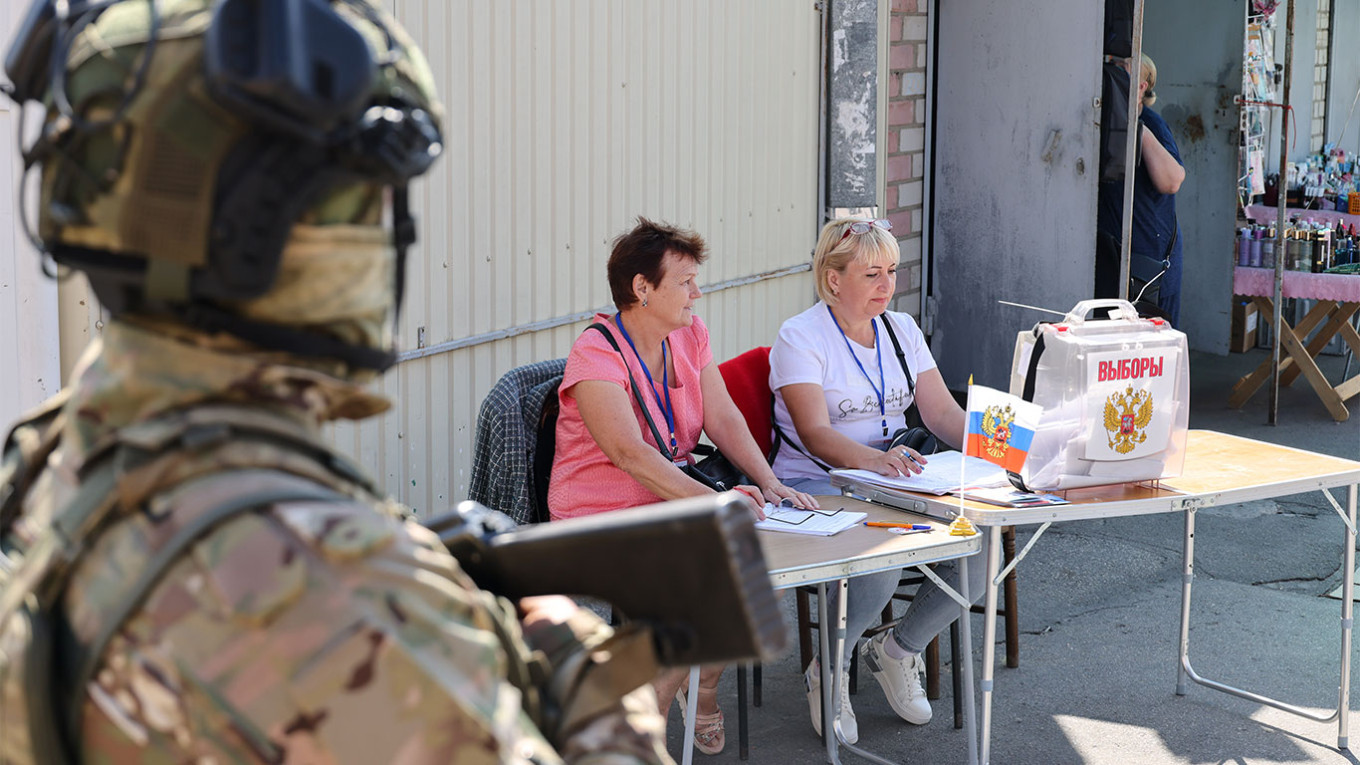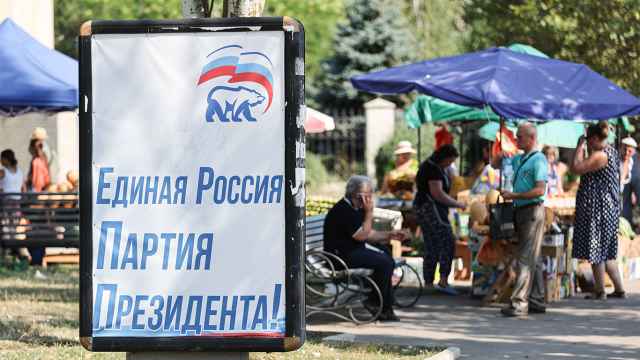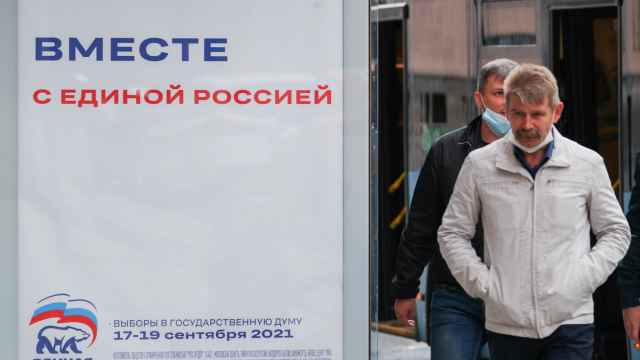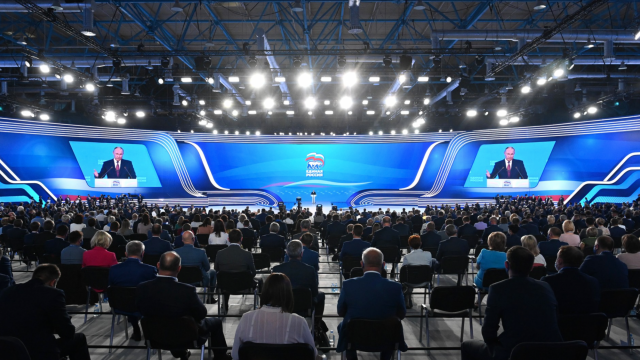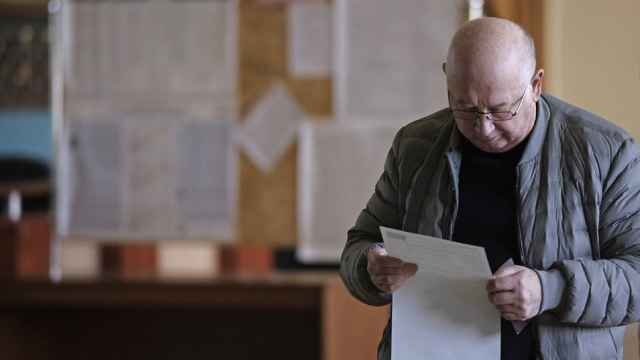The Kremlin is working to solidify its control — both militarily and politically — over the four Moscow-occupied regions of Ukraine with this month’s regional elections there, experts and officials told The Moscow Times.
Nearly a year after Moscow staged widely disputed referendums to annex Ukraine’s Donetsk, Luhansk, Zaporizhzhia and Kherson regions, Russian authorities now aim to “legitimize” them as an integral part of Russian territory — and prevent them from being able to return to Ukraine.
In the days leading up to Sept. 10, the four regions will vote to choose local parliaments despite Moscow failing to fully control any of them and active combat in several areas.
"The main goal that the Kremlin is aiming to achieve through these elections is to legitimize the authorities and showcase that the residents of these territories are aligning themselves with [Russia],” a Russian government official said on condition of anonymity because he was not authorized to publicly discuss the election strategy.
“All of this [election campaign] is meant to show their political integration into Russia," he told The Moscow Times.
In addition to building legitimacy, the vote, which could be postponed due to martial law in the four regions, is also aimed at showing the Russian public that the war against Kyiv is “going according to plan,” experts said.
“The Kremlin is addressing its propaganda challenges — to demonstrate that Russia is there forever and that [these regions] are already integral parts of Russia,” said Konstantin Skorkin, an expert on the politics of eastern Ukraine.
“The second task is to normalize and routinize the war as much as possible and to show that there is ‘the so-called special operation’ that is going according to plan, which does not change the country’s life at all,” Skorkin added.
Following the elections, local parliaments will appoint regional and municipal leaders. None of the four regions’ residents will have a direct role in choosing their local executive branch. Elections in the occupied territories will also be conducted solely through party lists, meaning that residents of these regions will not be voting for individual candidates.
While the candidate lists for the election to local parliaments include candidates from the ruling United Russia party, the Communist Party (KPRF), the nationalist Liberal Democratic Party (LDPR), the New People party and the A Just Russia party, United Russia is expected to reap the most benefits, experts say.
Most of the actions taken by the occupying authorities in these territories — including the distribution of humanitarian aid, payment of state benefits and pensions, and medical assistance — were carried out under the auspices of the Kremlin-aligned United Russia party.
According to the Russian state-run VTsIOM pollster, support for United Russia in the occupied territories ranged from 80% to 89% as of last month.
The full candidate lists have not even been published due to “security concerns.” According to a joint investigation by iStories and the Conflict Intelligence Team (CIT), a number of candidates have past criminal convictions, including corruption, tax evasion, and robbery, which were cleared.
Igor Bazarny, who is running as part of the LDPR in the Kherson region, was convicted for abuse of authority in a military unit in the Murmansk region in 2020. His criminal record was later expunged.
The lists also include at least two officials from President Vladimir Putin's administration. Oleg Nesterov, who is on the list of candidates for the Zaporizhzhia regional assembly, was never a public figure until he was sanctioned by the U.S. for allegedly coordinating an illegal referendum on the entry of Zaporizhzhia into Russia and overseeing the establishment of so-called “filtration camps” for Ukrainian refugees.
Another presidential administration official, Igor Deryugin, previously served in an FSB Border Service academy and is on the United Russia candidate list for the Kherson region.
One-third of candidates in the Zaporizhzhia and Kherson regions are housewives, pensioners, students or unemployed people, the iStories and CIT report said.
Some local candidates appeared to switch their positions on the war just months ago. Vitaliy Buliuk, the former deputy chairman of Ukraine's Kherson administration who is now running for the Kremlin-backed Kherson parliament, had posted that “Kherson is Ukraine” as recently as April 2022, the journalists said.
While the elections appear aimed at bolstering locals’ loyalty to Moscow, the voting process, which began last week and ends Sunday, may be extended due to people's reluctance to participate, a source close to the Kremlin told The Moscow Times.
“People are tired of the war and are not eager to go to the polling stations” in the occupied regions, the source said. “Therefore, the authorities have added a few more days of early voting to the [existing] three days of voting in order to try to bring more people to the ballot boxes.”
According to the source, this election differs significantly from the referendum to annex Crimea in 2014, when Russia carried out a widely criticized vote denounced by Ukraine and Western nations.
“[Back then] peninsula residents didn't require much motivation to go to the polling stations. They were eager and turned out in large numbers,” the source said, but this year “the situation is very different.”
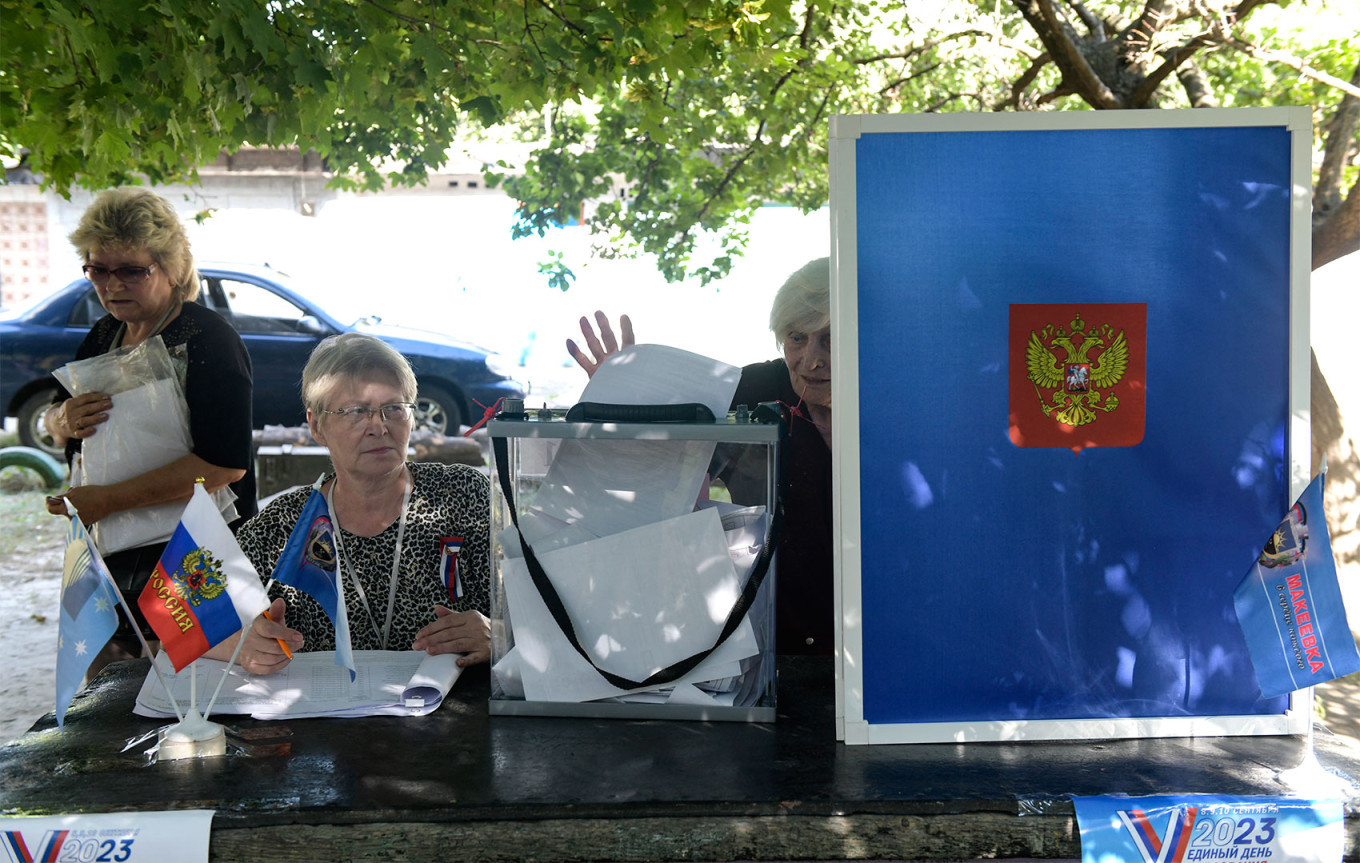
In an apparent attempt to boost voter turnout, residents of all four regions are also permitted to use their Russian or Ukrainian passports when participating in the vote.
Ukraine has already slammed the vote, asking locals not to participate and reportedly distributing leaflets with messages like “Ignore the elections” and “Don’t play along with the occupier.”
"By organizing fake elections in the Ukrainian regions and Crimea, the Kremlin continues to delegitimize the Russian legal system," Ukraine’s Foreign Ministry said in a statement Friday, adding that those involved in the elections should be sanctioned.
However, according to experts and Russian officials, the Kremlin is unlikely to allow any other result besides a cementing of its power.
“The main risk is an escalation of the military situation and the threat of shelling since the territories are a frontline zone," the source close to the Kremlin said.
"It is clear that there are no risks of the ruling [United Russia] party losing because the elections there are purely a sham.”
A Message from The Moscow Times:
Dear readers,
We are facing unprecedented challenges. Russia's Prosecutor General's Office has designated The Moscow Times as an "undesirable" organization, criminalizing our work and putting our staff at risk of prosecution. This follows our earlier unjust labeling as a "foreign agent."
These actions are direct attempts to silence independent journalism in Russia. The authorities claim our work "discredits the decisions of the Russian leadership." We see things differently: we strive to provide accurate, unbiased reporting on Russia.
We, the journalists of The Moscow Times, refuse to be silenced. But to continue our work, we need your help.
Your support, no matter how small, makes a world of difference. If you can, please support us monthly starting from just $2. It's quick to set up, and every contribution makes a significant impact.
By supporting The Moscow Times, you're defending open, independent journalism in the face of repression. Thank you for standing with us.
Remind me later.




